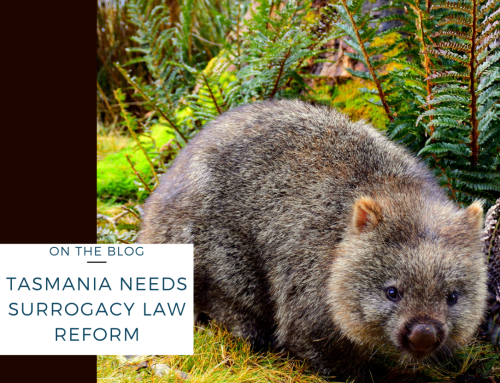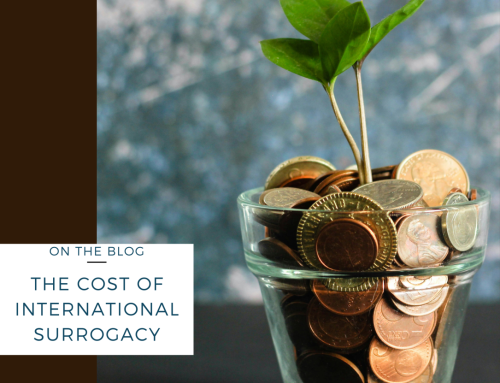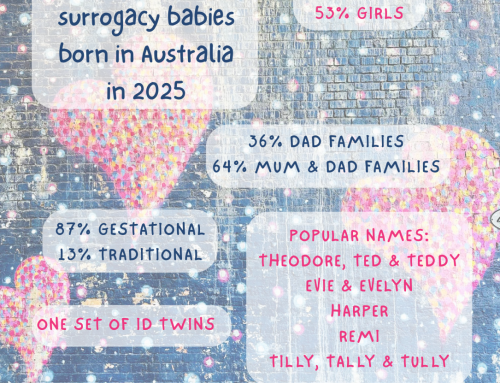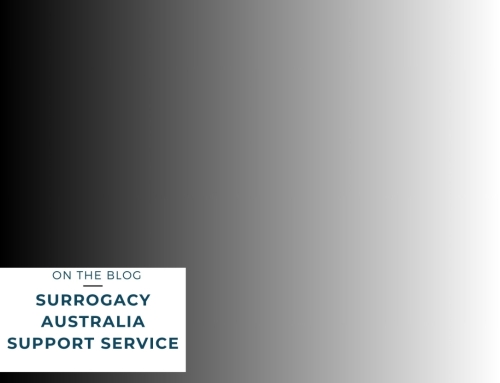Surrogacy and the media – what are the benefits and consequences?
Are you thinking of sharing your surrogacy story in the media? Positive surrogacy stories can help promote surrogacy in Australia, and for some people it can feel like a lovely milestone to share their surrogacy and the media is often happy to be involved.
Many intended parents and surrogates have shared positive surrogacy stories in the hope of effecting change to our laws. And sometimes, famous people have children via surrogacy and there’s a media storm to go with it. And sometimes the stories are not positive, and we hope to learn from them.
But wait! Are we allowed to share our surrogacy story with the media?
Well, that’s a good question. The answer depends on which state you live in, and whether everyone involved is happy and consenting to share the story.
Many state surrogacy laws – South Australia, New South Wales, Tasmania, Victoria, Northern Territory and Queensland – restrict the publication of anything that identifies the parties or a child born via surrogacy. Each state is different – some states allow for such stories to be shared if everyone is consenting.
The restrictions on sharing your surrogacy with the media are different from the restrictions on advertising for a surrogate. There are prohibitions on advertising for a surrogate, or to be a surrogate, in several states.
There are good reasons to limit publicly identifying the parties or the children born via surrogacy. While everyone has their own limits on what and how they want to share their surrogacy story, the child involved has rights to have their privacy protected. This includes the fact that they were born via surrogacy, and who their donors or birth parents are. Some people are happy to share their story but only using their first name, and without photos, or blurring the faces of the child. The important thing is to manage everyone’s expectations, including the media.
You might also have agreements about sharing your story on social media, with friends, family and your immediate network.
But what if we all agree?
The first thing to consider when deciding if you will share your story publicly, is whether everyone involved – the birth parents and the intended parents, and any donors – would be willing to consent to being identified in the story. Consent is important, but may also be the deciding factor in whether the story can or cannot be shared. If anyone is not consenting, then it may be that the story cannot be published, or can only be published with non-identifying information about the parties and the child.
It’s always best if we’ve had these discussions before we enter the surrogacy arrangement, but never a bad time to start the conversation and agree on mutual expectations.
Before you speak to the media, it is worth considering the surrogacy laws in your state, discussing with your team, and getting legal advice. You might like to tell the journalist that they also need to get legal advice before they publish the story.
Negative stories?
Not all surrogacy stories are positive and surrogacy and the media don’t always go well together. Perhaps there’s been a relationship breakdown between the birth parents and the intended parents, or maybe you’re upset with your clinic, or frustrated with the surrogacy laws in Australia.
Unless you have the consent of all parties involved, then any story must be de-identified. That means no information can be published that identifies any of the parties, or the child born.
Consider too what the intent is behind sharing your story – are you hoping to motivate change, or payback? Perhaps a surrogacy counsellor can help, more than the media.
Do you think the media cares about you, or the child, or the other people involved? If they’re willing to exploit a negative surrogacy story for their own headlines, I can guarantee you they do not care about the impact to you, or the other people involved, or the broader surrogacy community.
If you are new to surrogacy, you can read about how to find a surrogate, or how to become a surrogate yourself. You can also download the free Surrogacy Handbook which explains the processes and options.
Sarah has published a book, More Than Just a Baby: A Guide to Surrogacy for Intended Parents and Surrogates, the only guide to surrogacy in Australia.
You can find more information by reading articles in the Blog, by listening to more episodes of the Surrogacy Podcast. You can also book in for a consult with me below, and check out the legal services I provide.








